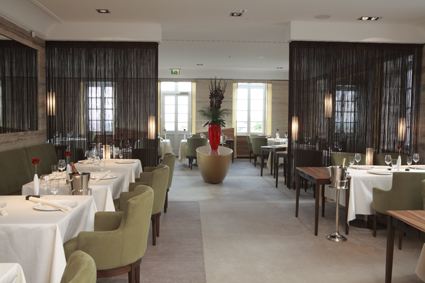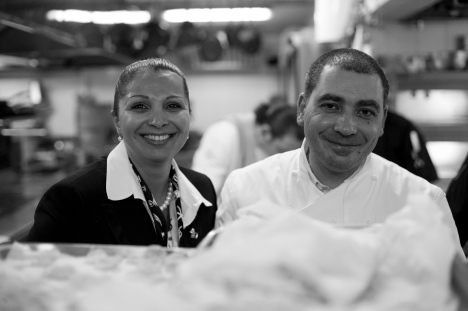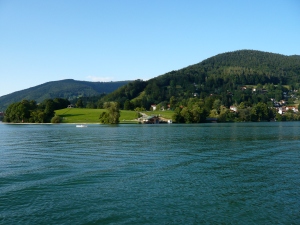Osnabrück? Where the heck is that? Well, for people interested in fine dining it is the home of the Restaurant La Vie where Thomas Bühner has been both chef and patron since April 2006. But, Osnabrück has more to discover…
Exactly 2000 years ago in the Battle of the Teutoburg Forest near Osnabrück Arminius led about 11 Germanic tribes to defeat the Romans under Varus. The city itself was founded in 780 by Karl the Great and soon became a diocesan town. Thus, in the medieval ages it was a prosperous town, even part of the mighty Hanseatic league in the 14th century. In 1648 the peace treaty after the Thirty Years’ War was partly signed in Osnabrück (the Peace of Westphalia of Münster and Osnabrück).
Moreover, after the second world war it become the home of more than 160 paintings of Felix Nussbaum who was born in Osnabrück and murdered by the Nazis in Auschwitz. Today, the Felix-Nussbaum-Haus of the magnificent Daniel Libeskind carries a nice collection of Jewish art. Right now, the special exhibition “The hidden trace. Jewish ways through modernity” reflecting Jewish life in the diaspora is worth the trip alone.
I can really say that I fell in love with Osnabrück even after having discovered only some of its treasures. Overall, Osnabrück today is a blend of old (timbered, neoclassical and rococo style) and modern buildings which is also characteristic of the cuisine of Thomas Bühner. Hm, quite a transition;-)
Interestingly, since Bühner was named chef of the year in the German Gault Millau in Nov 2005 it merely seemed a matter of time until the third star would be awarded. In the 2006 Michelin nothing happened simply because he announced to move to Osnabrück but held his two stars in the 2007 edition. The same was true in 2008 (promotion of Amador, Erfort and Lumpp) and in 2009 (promotion of Elverfeld). At the same time, Jürgen Dollase does not stop to praise Bühner’s cuisine and lately named him meal of the year in Germany in 2008. Enough to discover myself…







